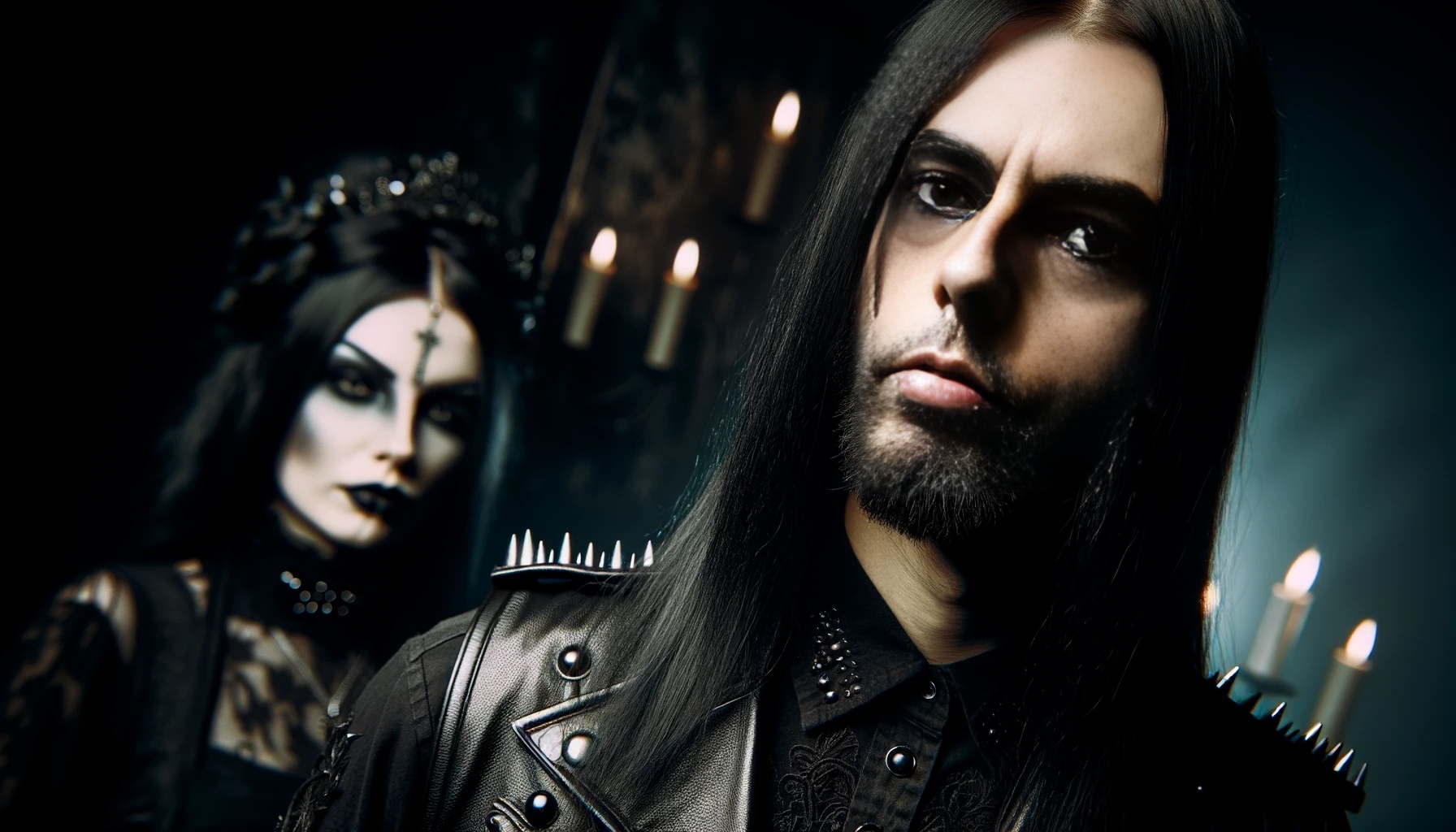The raw power and unfiltered emotion that once defined metal are fading into oblivion. As someone who’s lived and breathed metal through its golden eras, I can’t help but lament the decline of the raw edge that made metal so unique in the 80s and 90s. Back then, metal wasn’t just a genre; it was a lifestyle, an unyielding declaration of rebellion and authenticity. Today, however, modern metal has lost its way, becoming too polished, too produced, and ultimately, lacking the edge that once set it apart.

Modern Metal Lacks the Edge – The Golden Age of Metal
The Raw Power of the 80s
The 80s was a time when metal was still finding its footing, and in that process, it became a powerful force to be reckoned with. Bands like Metallica, Slayer, and Iron Maiden emerged, each bringing their unique sound that was raw, aggressive, and unapologetically loud. The production was far from perfect, but that’s what made it authentic. The slightly distorted guitars, the unrefined vocals, and the overall roughness were what gave the music its soul.
Metallica’s “Kill ‘Em All” (1983) and Slayer’s “Reign in Blood” (1986) are prime examples of albums that defined the era. They weren’t about technical perfection; they were about pure, unadulterated energy. The imperfections in the production made the music feel real, as if the bands were performing right there in your living room.
The Evolution in the 90s
As the 90s rolled in, metal evolved, but it retained its core essence of rawness and authenticity. Grunge and alternative metal bands like Nirvana, Alice in Chains, and Soundgarden took over the scene, bringing a darker, more introspective edge to the genre. At the same time, the rise of bands like Pantera and Sepultura kept the aggressive spirit of the 80s alive.
Pantera’s “Vulgar Display of Power” (1992) and Sepultura’s “Chaos A.D.” (1993) exemplify the raw power and unfiltered emotion of 90s metal. These albums weren’t just collections of songs; they were statements of intent, encapsulating the frustrations and anger of a generation. The production was still gritty, and the music felt alive, like it could burst out of your speakers at any moment.

The Decline of Authenticity in Modern Metal
Overproduction and Polished Sound
Fast forward to today, and the landscape of metal has changed dramatically. Modern metal bands seem to prioritize technical perfection over raw emotion. The production quality has improved significantly, but in doing so, it’s stripped away the very essence that made metal special. Everything sounds too clean, too polished, and too perfect. The raw edge has been replaced by a sterile, overproduced sound that lacks soul.
This overproduction is evident in the music of many contemporary metal bands. While their technical prowess is undeniable, their music often feels lifeless and mechanical. The use of digital editing tools, autotune, and pitch correction has become commonplace, sanitizing the music to the point where it loses its human touch. The imperfections that once made metal relatable and real are now edited out, leaving behind a hollow shell of what metal used to be.
The Homogenization of Metal
Another issue plaguing modern metal is its homogenization. In the 80s and 90s, each band had its unique sound and identity. Today, however, many bands seem to be following a formula, resulting in a lack of diversity and originality. The metal scene has become saturated with bands that sound strikingly similar, making it difficult to distinguish one from the other.
This homogenization is partly due to the influence of record labels and producers who prioritize commercial success over artistic integrity. They push bands to conform to a certain sound that they believe will sell, stifling creativity and innovation in the process. The result is a metal scene that feels stagnant and uninspired, lacking the bold experimentation and risk-taking that defined its earlier days.

The Lost Spirit of Rebellion
Metal as a Lifestyle
In the 80s and 90s, metal wasn’t just music; it was a lifestyle. It was a symbol of rebellion against the mainstream, a way for outsiders to find a community and express their individuality. Metalheads wore their love for the genre on their sleeves, literally, with band t-shirts, leather jackets, and long hair. Concerts were a communal experience, a place where fans could come together and lose themselves in the music.
Today, that sense of rebellion seems to have diminished. Metal has become more mainstream and, in doing so, has lost some of its edge. The genre that once stood in stark contrast to popular culture has now become a part of it. While this increased acceptance has its benefits, it has also diluted the spirit of defiance that once defined metal.
The Commercialization of Metal
The commercialization of metal has also played a significant role in its decline. In the 80s and 90s, metal bands often operated on the fringes of the music industry, but today, they are more integrated into the commercial framework. This integration has led to a focus on marketability and profit, often at the expense of artistic expression.
Bands are now pressured to produce radio-friendly singles and follow trends to stay relevant. This shift in focus has led to a loss of authenticity and a disconnect from the genre’s roots. Metal has become a product, packaged and sold to the masses, rather than a raw and unfiltered form of self-expression.

The Way Forward, Modern Metal Lacks the Edge
Embracing the Past
To reclaim its lost edge, modern metal needs to look back to its roots. Bands should take inspiration from the raw power and authenticity of the 80s and 90s. This doesn’t mean replicating the past, but rather, capturing the spirit of rebellion and unfiltered emotion that defined those eras.
Fostering Creativity and Originality
The metal community also needs to foster creativity and originality. Bands should be encouraged to experiment and push boundaries, rather than conforming to a commercial formula. Independent labels and platforms can play a crucial role in supporting artists who prioritize artistic integrity over commercial success.
Keeping the Spirit of Metal Alive
Ultimately, the survival of metal’s edge depends on the fans. Metalheads need to support bands that stay true to the genre’s roots and reject the overproduced, homogenized sound that dominates the mainstream. By doing so, we can keep the spirit of metal alive and ensure that it remains a powerful force of rebellion and authenticity.
Modern metal may lack the edge of the 80s and 90s, but it’s not too late to reclaim it. By embracing our roots, fostering creativity, and staying true to the rebellious spirit that defines our community, we can revive the raw power and authenticity that once made metal great.
To explore more about metal culture and stay connected with the latest updates, visit the home page and follow all my social media links at here.
Keep it loud, keep it raw, and never forget the spirit of metal! Now you knoe why Modern Metal Lacks the Edge.




